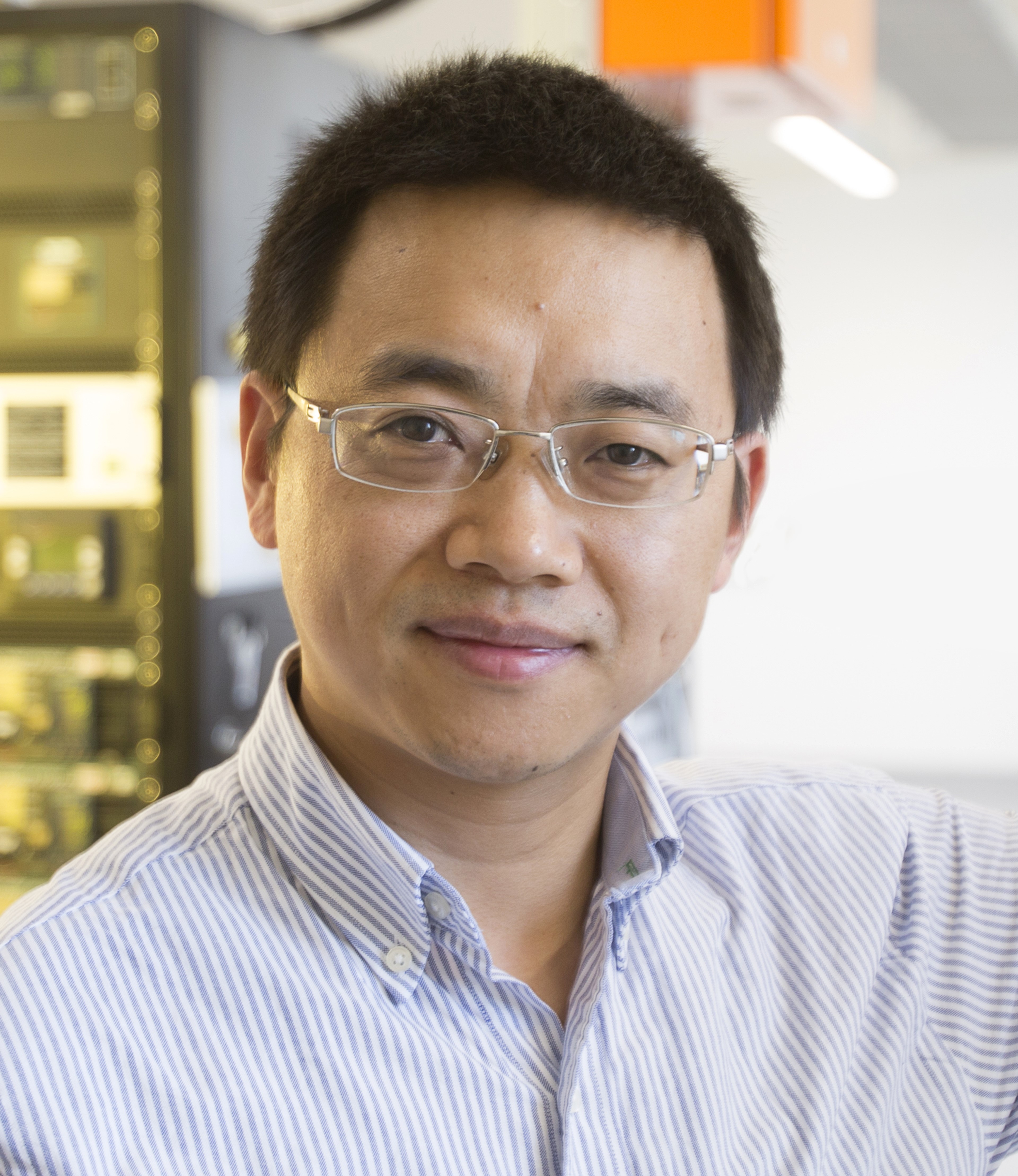Interests
Quantum control machine learning, system identification, renewable energy
Research
Dr Dong’s research focuses on enhancing system performance using control theory and machine learning. Current research projects include control and learning for enhancing capabilities of quantum sensors, estimation and control of quantum systems, quantum machine learning, optimisation and learning of renewable energy systems, reinforcement learning and applications, machine learning and applications to chemical, material and optical systems.
Biography
Dr Daoyi Dong is a Future Fellow of the Australian Research Council at the School of Engineering, Australian National University (ANU), and a Fellow of the IEEE. He received a B.E. degree and a Ph.D. degree from the University of Science and Technology of China in 2001 and 2006, respectively. He joined the University of New South Wales, Australia in 2008. He held visiting positions at Princeton University, USA; RIKEN, Japan; The University of Sydney; The University of Melbourne; The University of Duisburg-Essen, Germany; and the University of Hong Kong, Hong Kong.
Publications
-
Dong D and Petersen I R. Learning and Robust Control in Quantum Technology. Springer Nature, 2023, ISBN-13:978-3031202445.
-
Li J, Dong D, Wei Z, Liu Y, Pan Y, Nori F and Zhang X. Quantum reinforcement learning during human decision-making. Nature Human Behaviour, 2020, vol.4, pp. 294-307.
-
Dong D and Petersen I R. Quantum estimation, control and learning: opportunities and challenges. Annual Reviews in Control, 2022, vol. 54, pp. 243-251.
-
Fan L, Shu C C, Dong D, He J, Henriksen N E, Nori F. Quantum coherent control of a single molecular-polariton rotation, Physical Review Letters, 2023, vol. 130, p. 043604.
-
Wang Y, Yokoyama S, Dong D, Petersen I R, Huntington E H and Yonezawa H. Two-stage estimation for quantum detector tomography: error analysis, numerical and experimental results. IEEE Transactions on Information Theory, 2021, vol. 67, pp. 2293-2307.
-
Wang Y, Dong D, Qi B, Zhang J, Petersen I R and Yonezawa H. A quantum Hamiltonian identification algorithm: computational complexity and error analysis. IEEE Transactions on Automatic Control, 2018, Vol. 63, pp. 1388-1403.
-
Guo Y, Shu C. C, Dong D, and Nori F. Vanishing and revival of resonance Raman scattering. Physical Review Letters, 2019, Vol. 123, p. 223202.
-
Dong D and Petersen I R. Sliding mode control of two-level quantum systems. Automatica, 2012, Vol. 48, pp. 725-735.
-
Dong D, Chen C, Li H and Tarn T J. Quantum reinforcement learning. IEEE Transactions on Systems Man and Cybernetics, Part B: Cybernetics, 2008, Vol. 38, No. 5, pp. 1207-1220.
-
Dong D and Petersen I R. Quantum control theory and applications: A survey. IET Control Theory & Applications, 2010, Vol. 4, pp. 2651-2671.
For a full list of publications, please refer to Daoyi’s Google Scholar page
Activities & Awards
He is a recipient of a Humboldt Research Fellowship from the Alexander von Humboldt Foundation of Germany, the inaugural ACA Temasek Young Educator Award from the Asian Control Association, an International Collaboration Award, a Discovery International Award and an Australian Postdoctoral Fellowship from Australian Research Council. He was/is an Associate Editor or Guest Editor of several journals including IEEE Transactions on Neural Networks and Learning Systems, Annual Reviews in Control, IEEE/ASME Transactions on Mechatronics, and IEEE Transactions on Cybernetics.
